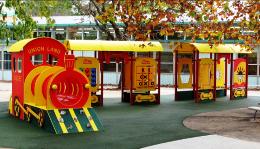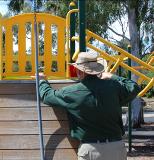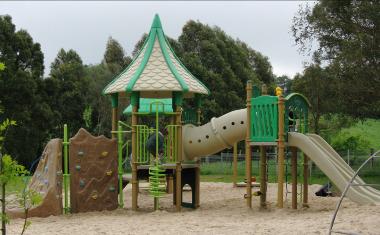
Inspection Types
Playground inspections are an important part of maintaining your play space.
The inspection descriptions below are defined by Professor David Eager who sits on several play standards committees and is a certified RoSPA trainer at the University of Technology, Sydney.

Routine Inspection (Visual) Level 1
The Routine Inspection is a visual inspection aimed at spotting the obvious hazards. These can result from vandalism, use, or weather conditions and can take the form of broken equipment parts or glass Routine inspections maybe carried out at a frequency of daily to weekly depending on use. Suitably trained grounds maintenance staff can carry out this inspection and make a simple record of their findings. It may sometimes be part of their job to clean the area and remove litter.

Operational Inspection (Maintenance) Level 2
The Operational Inspection is a more detailed inspection than the Routine Inspection and is used to check on equipment operation and stability, especially for wear. They should be conducted monthly to quarterly, depending on usage, or as indicated by the manufacturer. Ideally these inspections would be conducted by trained and certificated Operational Inspectors who have met the requirements of the UK-based Royal Society for the Prevention of Accidents (RoSPA), the internationally recognised competency standard for playground inspectors. Operational inspectors should keep records of all inspections and some may carry tools and replacement parts to allow them to conduct repairs during the inspection.

Comprehensive Annual Inspection (Safety and Compliance) Level 3
The Annual Inspection is a more detailed inspection than the Operational Inspection. The Standards require a competent inspector to conduct Annual Inspections and submit a report. This is specialist work and requires extensive experience at a professional level. In practice an experienced third party usually conducts the Annual Inspection. To avoid any potential conflict of interest the Level 3 Annual Inspector must be independent of the playground provider, designer, manufacturer and installer. It is common for their reports to be used as legal evidence in court should litigation occur, or in disputes between playground providers, installers or maintainers.
Post-Installation Inspection (Safety and Compliance) Level 3
Certified Annual Inspectors are also called on to check newly installed play spaces. The inspection reports thus produced will be used by Councils to determine: whether the playground is safe to open to children; the non-compliance issues that must be addressed; whether Council can take acceptance; and whether the Council can release the bankers guarantees or any retention monies held. Before opening their play spaces to the public, play space providers need to know from a competent inspector that a new play space has been assessed as suitably safe, complies with the safety standards and that everything has been installed correctly so that when the Routine and Operational Inspectors conduct their inspections they can focus on visual and maintenance type issues and are not distracted by Level 3 compliance issues such as fall zones, fall heights and complex potential entrapment configuration that require skills beyond their level of training and competency.